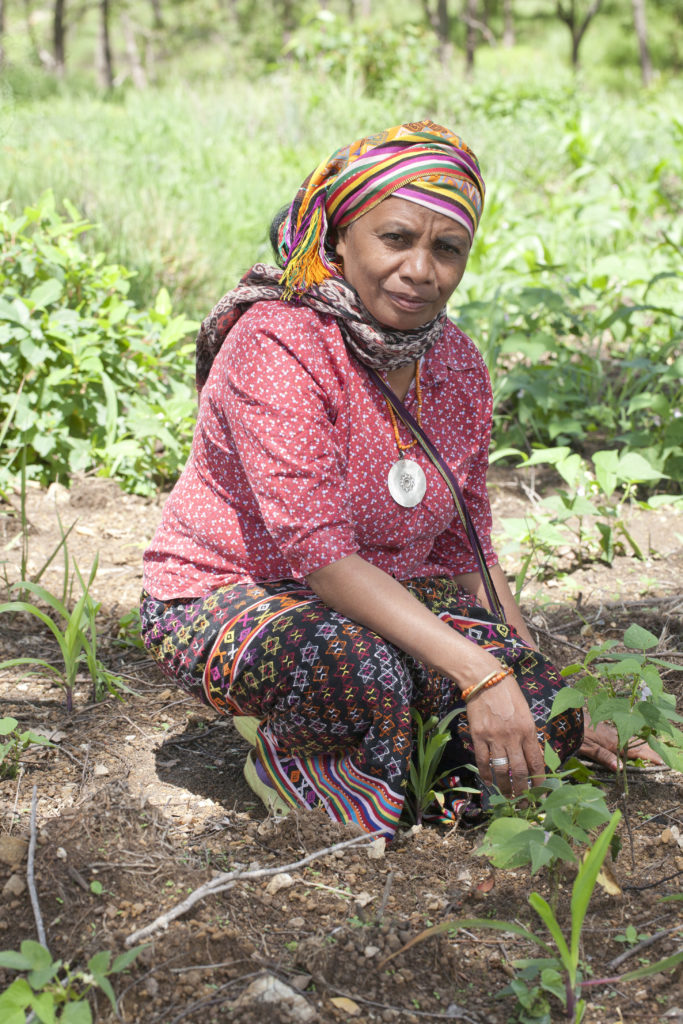
Mama Aleta Baun is a Molo indigenous woman living in the Indonesian part of the island of Timor. Aleta Baun lives in the shadow, and light, of Mutis Mountain, which is the source of all of the rivers on the island. For Timor, Mutis Mountain is the source of life.
In the 1980s, the local government illegally issued permits to marble mining companies to mine on Mutis Mountain. In 1996, the companies started clearing trees and rocks on the mountain. Aleta Baun saw this and went into action.
First, she formed an alliance with three other women. They went door-to-door, village-to-village. The distances between houses and, even more, villages were great. Baun and the three other women persevered. Their message was simple, direct and profound: “We regard the earth as our human body: stone is our bone; water is our blood; land is our flesh; and forest is our hair. If one of them is taken, we are paralyzed.”
For the Molo people, that paralysis would be a form of death. Baun had an additional message for the women: “We also emphasized to women that the forest provides the dyes for our weaving, which is a very important part of our lives. That inspired us to showcase our weaving in the form of a peaceful protest starting in 2006.”
Baun organized a weaving occupation of the mining camps. Over 100 women showed up, formed a circle in the mining quarry, sat down and silently wove traditional textiles. They sat and wove, silently, for over a year: “When we began our protest, women realized that they could do more — take a stand and be heard. Women are also the recognized landowners in the Molo culture, and this reawakened in those women who hadn’t been actively speaking out a desire to protect their land.”
The assault on the forest targeted women. Women are the ones who go into the forest and emerge with food, medicine, dye, sustenance. The marble mining companies had touched the women and struck a rock.
For four years, the women organized weaving occupations, and for four years the Molo men took on all the domestic work in their communities. This was a women-led full community campaign. In 2010, the marble mining companies packed up their tools and left.
From Aleta Baun’s perspective, the heart of the struggle was popular re-education: “The protest is part of the re-education of the people.” Now, Mama Aleta Baun is busy organizing Molo women and men to map the forestlands for themselves, and then to lay proper legal claim to all that is their land, their dignity.
Have you heard about Mama Aleta Baun and the weaving occupation? It’s a story worth repeating.
(Photo credit: Goldman Environmental Prize)